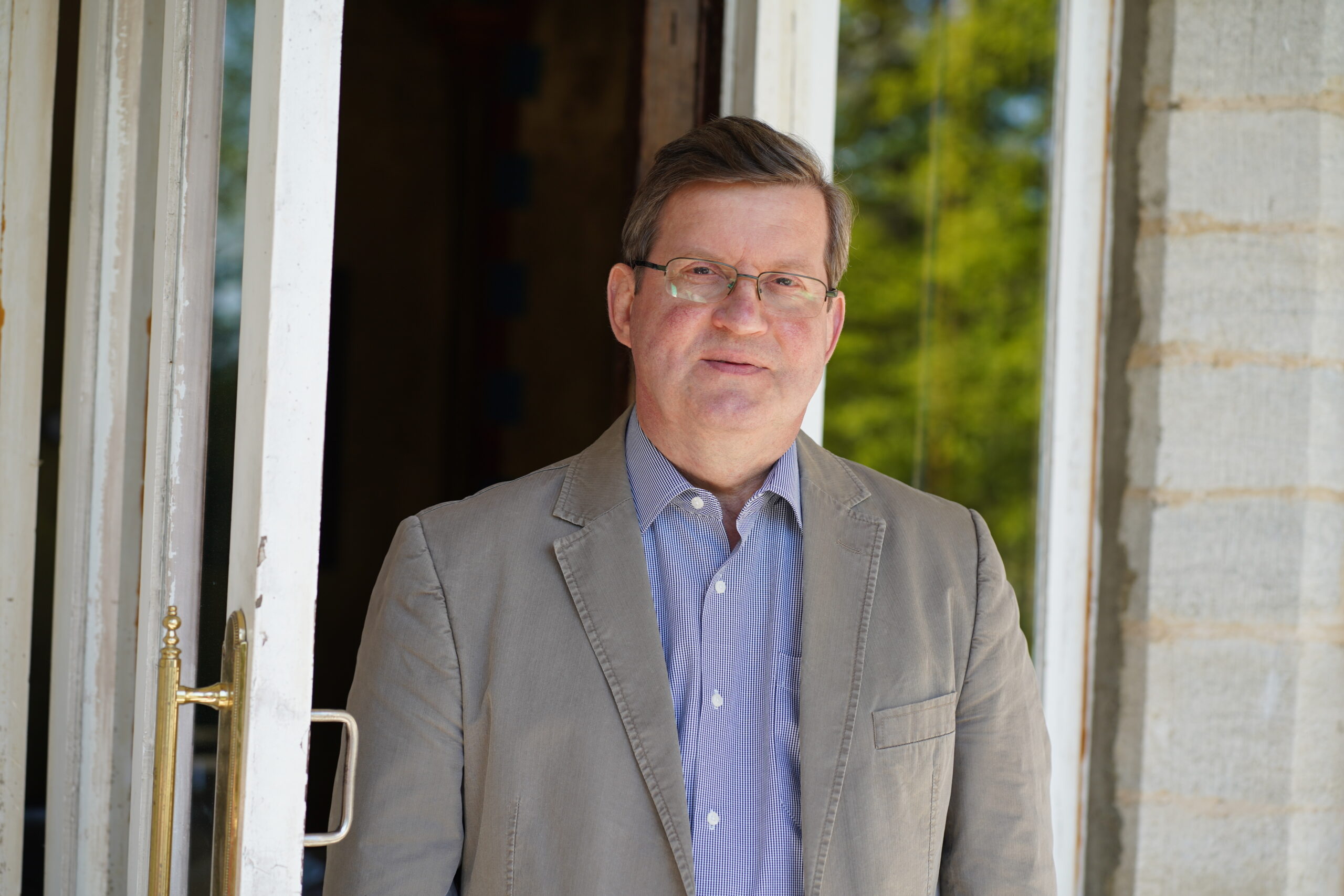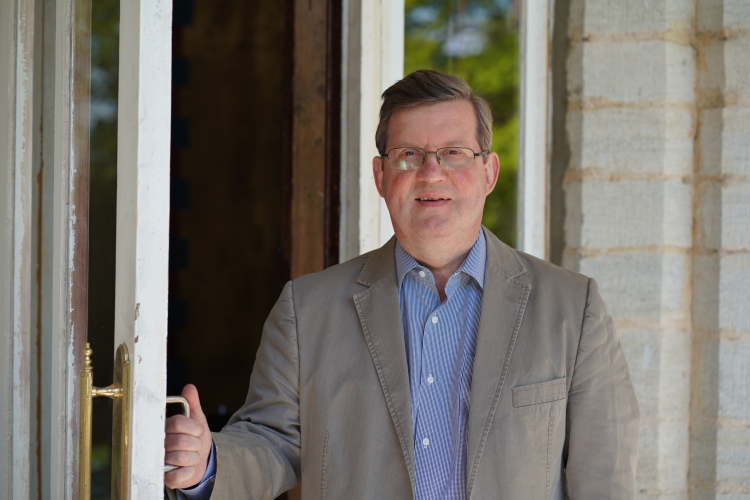
Madis Kanarbik: There are so many ties binding us to the Nordic countries
When it comes to the Estonian office of the Nordic Council of Ministers (NCM), Madis Kanarbik is very much part of the furniture: he has been working there since 1991. A gallant man and first-rate conversationalist, he also boasts an astounding memory and a wealth of knowledge – all of which serve him well in his role as head of the office’s branch in Tartu.
This year, the head office of the NCM in Copenhagen is marking 50 years of operations, to which Madis has been making his own not immodest contribution for more than a quarter of a century. He joined what was then the Estonian Information Bureau of the NCM in November 1991. At first the bureau was based in Otepää, but it was moved to Tartu – where it has been ever since – in 1993. The aim in doing so was to extend the NCM’s support programmes to every corner of the country, which soon saw Madis working not just with Tartu, but also Valga, Pärnu and Narva, where he has since organised information days and a range of other events almost every year.
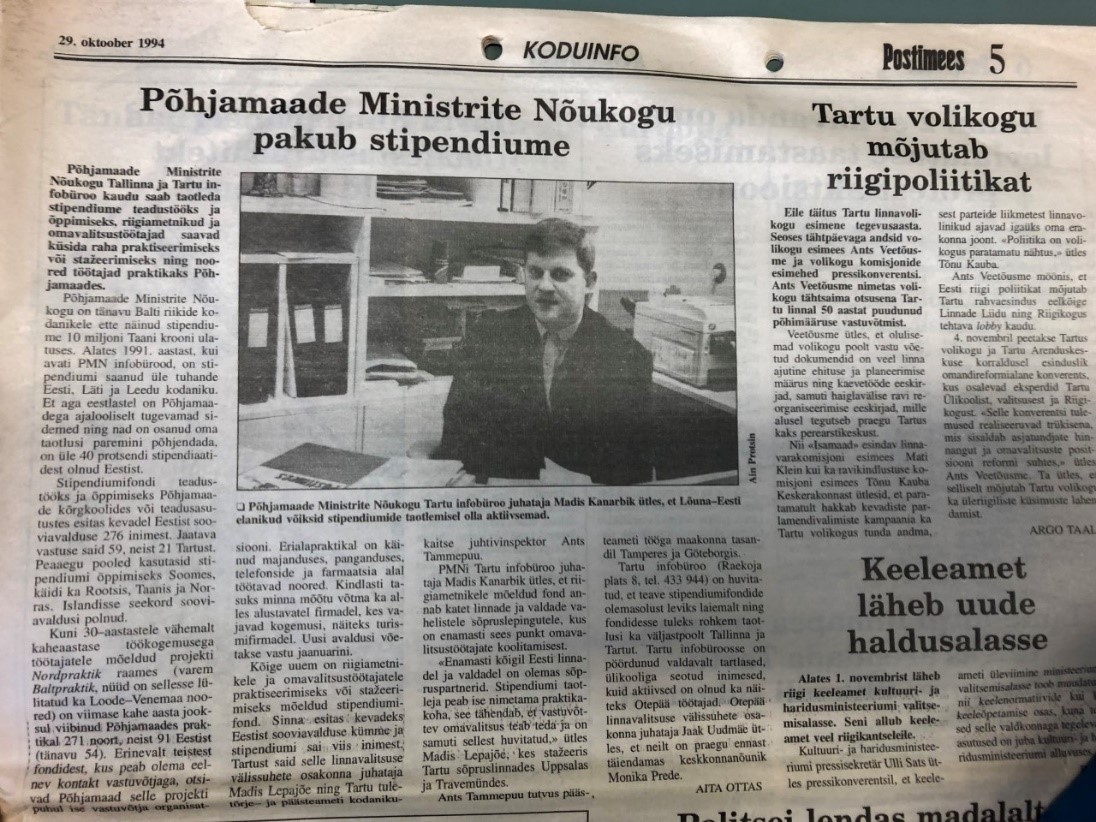
From history teacher to partnership promoter
Madis’ educational background is in history, of which he was the teacher at Nõo Secondary School for six years. At the same time, he has always had an affinity for Nordic culture and the Nordic way of life, which is why he chose to study the history of Estonian Swedes at university. He wrote his dissertation on the ethnic Swedish population of the island of Vormsi and took up studies of Swedish under Tiina Mullamaa.
As early as during his time as a history teacher Madis busied himself establishing partnership networks with Nordic colleagues. “I got the chance to put my elementary Swedish skills to the test straight away while I was working at the school when I organised some student and teacher exchanges and cooperation projects with colleagues from Sankt Botvids Gymnasium in Botkyrka, just outside of Stockholm,” he explains. “Those first exchanges – we’re talking back in 1989, 1990 here – were just amazing. I’m still friends with some of the teachers. We see one another occasionally, and keep in touch.”
Education, research, cross-border cooperation and migration issues
Ever since he started at the NCM, Madis has worked on cooperation in the fields of education and research. He is extremely pleased that Estonia is now an equal partner in the Nordic-Baltic educational cooperation programme Nordplus, which is one of the NCM’s biggest partnership and support programmes. “It’s brilliant that Estonia’s actively working with the NordForsk centre of excellence in research cooperation as well,” he smiles. “One of the best examples from recent times in this field is an agreement that Wordforms’ and the Estonian Research Council entered into in Tartu in 2020, which saw Estonia join the NeIC initiative for Nordic e-infrastructure collaboration.”
In time, Madis was also entrusted with overseeing regional and cross-border cooperation and migration and integration issues. Working with the University of Tartu, the Ministries of the Interior, Education and Research, Culture and Social Affairs and many other partners, the NCM has organised eight Nordic-Baltic migration conferences in Estonia. “I’m convinced migration will become an even more acute issue in the years ahead,” he says. “Recent events on the Lithuanian border show that we need to be turning as much attention as ever to the issue, if not more, from the point of view of security and a whole range of other aspects.” Cooperation with the Latvian and Lithuanian offices of the NCM has resulted in the imminent launch of a new pan-Baltic migration and integration project for 2021-2023.
Over the years, Madis has dealt with a variety of Nordic-Baltic support programmes in the fields of higher education, entrepreneurship and regional cooperation. These include the Nordic-Baltic Mobility Programme for Public Administration, whose activities he has been coordinating for a decade. “It’s given me the chance to get to know the public service inside out, really, and to keep an eye on the changes that have taken place in it and the innovations that have been introduced to it over time in our neck of the woods,” he explains. “It’s also enabled me, where possible, to contribute to them via the mobility programme.”
When asked what he considers the most important part of his work to be, Madis does not hesitate in naming migration and integration. “The free movement of people is one of the core values of cooperation between the Nordic countries and the Baltic States, as it is in the European Union and around the world,” he says. Thanks to the Nordic-Baltic migration and integration conferences, a highly effective platform for debate and network have developed among higher education institutions, the state, local authorities and NGOs in the region. “We’ve worked with our partners to enable balanced, fact-based social discussion of migration issues, which directly affect a lot of people in terms of their studies and personal and professional lives in Estonia and throughout the region,” he adds.
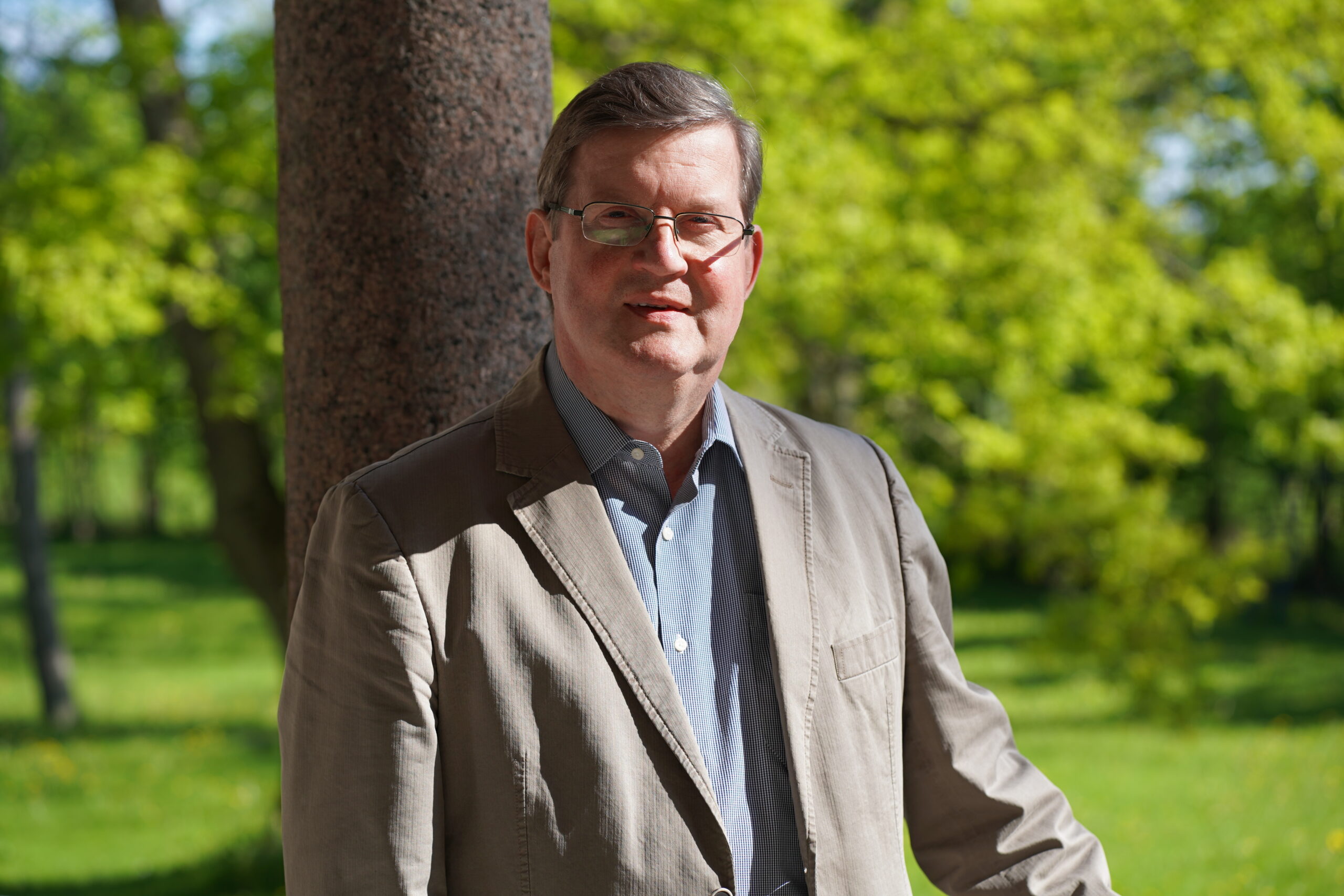
Cooperation is led by people
Over time, Madis has come to realise that cooperation is led by people and that it is up to agencies, institutions and organisations to create the conditions for and to support such partnerships. “That’s why I’ve got such vivid memories of all the great people I’ve met and the fantastic events we’ve organised together,” he smiles.
Madis also clearly recalls the early years of the Tartu branch of the NCM, when its office on Town Hall Square played host to many of the lectures given by the university’s Department of Scandinavian Studies, which lacked enough rooms of its own at the time. (Said department is also marking its 30th anniversary this year, incidentally.) The Tartu branch of the NCM also served as a meeting place for the Norwegian Society of Tartu and the city’s offshoot of the Norden Association of Estonia. It has also hosted a large number of meetings and consultations that have led to or served as continuations of joint initiatives like the Café Norden get-togethers in Tartu and events held as part of the university’s traditional Gustav Adolf Day.
Madis recalls in particular the early 2000s when the NCM and its partners sought to promote in North-Western Russia the Baltic States’ experience of establishing and strengthening civil society and democracy. “We held all sorts of meetings, gave talks, ran seminars and conferences and set up a bunch of other projects,” he explains. “But that all petered out within a few years, and as exciting and unforgettable as those trips were, they’re now very much a thing of the past.”
New circumstances, new opportunities
The changes wrought by the coronavirus pandemic have seen the Estonian office of the NCM testing new ways of promoting Nordic cooperation and organising joint projects. The series of sustainable economy-themed podcasts launched by his colleague and namesake Madis Tilga gave our Madis the opportunity to take part in a migration-themed discussion organised by the Äripäev business daily entitled ‘Migration and Mobility – Living Next Door to the Nordics’. “That was quite a new thing for me, and an interesting experience,” he says. “I was joined by Saara Pellander, the director of the Migration Institute of Finland, along with Professor Raul Eamets, the dean of the Faculty of Social Sciences of the University of Tartu, and Tiit Tammaru, a professor and academic from the university. We talked about the way migration is changing and about migration policies in the Nordic countries and the Baltic States. I’m hoping we’ll be able to do another podcast like it this autumn, this time on entrepreneurship in the region, entitled ‘From Science to Business – the Nordic Dimension’.” A discussion of the same topic was held as part of this year’s Estonian Opinion Festival in August.
Madis is also planning to launch, in cooperation with Tartu Science Park and the Centre for Entrepreneurship and Innovation of the University of Tartu, a large-scale Nordic-Baltic cooperation project in the fields of research and enterprise in which he hopes to get colleagues from the Latvian and Lithuanian offices of the NCM involved.
The Norden Estonia dream team
Although geographically isolated from his colleagues, Madis is very happy in his job and with the sense of team spirit that accompanies it. “I like working in Tartu, and the NCM makes for an inspiring and innovative employer,” he says. “Plus we have an amazing team in the Estonian office – a real dream team! The pandemic has kept us all a little more separated than usual, but modern technology means it’s been easy enough to keep in touch with one another and run things by one another and maintain that sense of togetherness we have. And I work with a lot of really inspirational partners here in Tartu, which is every inch a Northern European city. It’s a great place for organising activities with a Nordic link.”
Thanks to his many years with the NCM, Madis has come to appreciate the similarities between the Nordic countries as well as the quirks that set them apart. He has also gained many valued friends and colleagues in the Nordic countries and Baltic States. With his work involving a great deal of interaction not just with the Nordic countries but also with Latvia and Lithuania, he describes the chance this has given him to also get to know his Baltic neighbours better as a welcome bonus. “Nordic cooperation’s a brilliant starting point for honing all sorts of knowledge, because every project opens a door to some new area for you to dive into and find new partners in,” he says. “The years I’ve worked with the NCM have expanded my horizons so much. I feel like I’m part of this constantly evolving space, and I’m really happy that I can make my own humble contribution to the development of Northern Europe as a region – one we all belong to.”
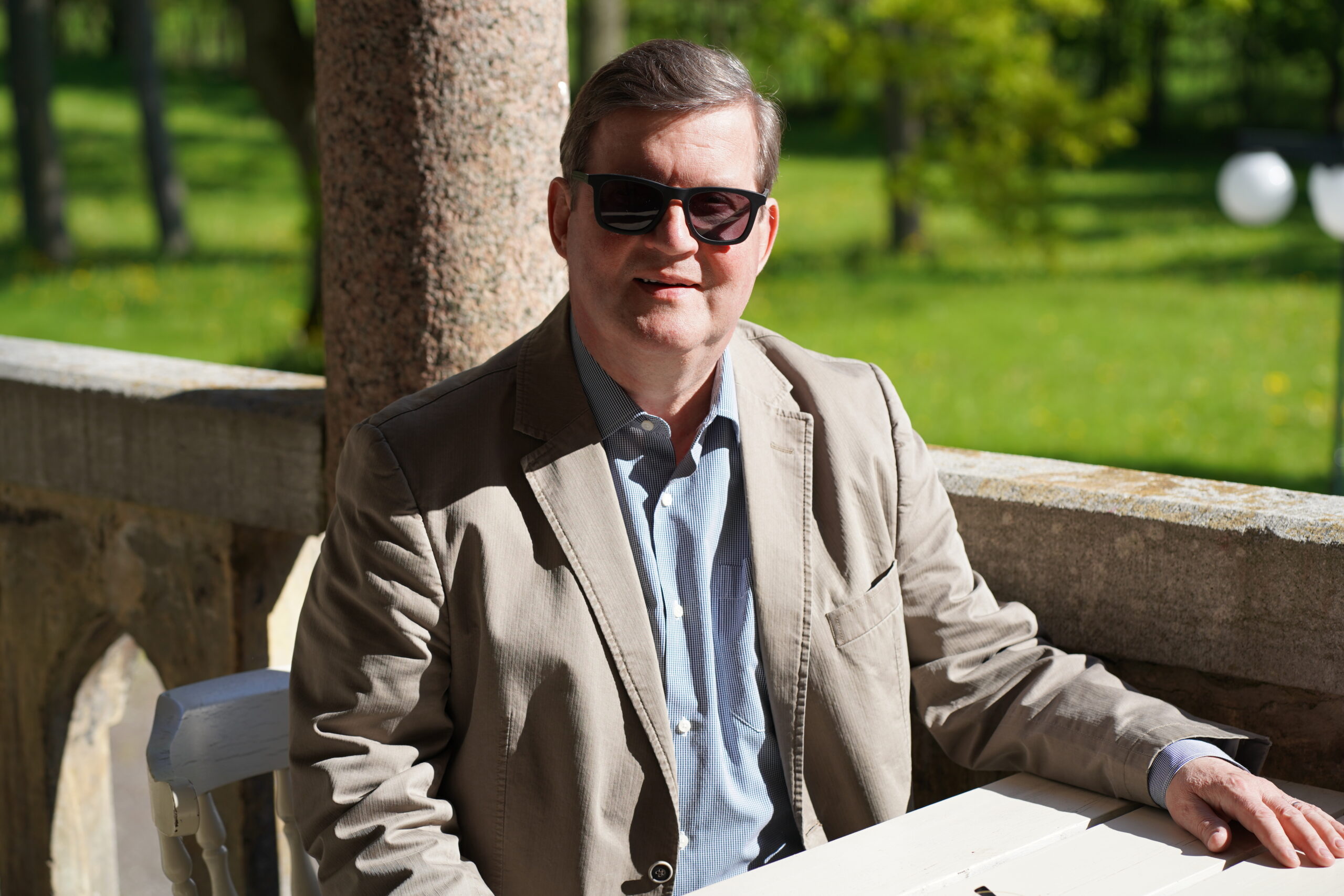
An honorary consul with cultural qualifications
Madis is of the firm belief that Estonia forms part of the same historical, cultural, geographic and economic region as the Nordic countries. “I think we Estonians have a very strong Northern European identity,” he says. “There are so many ties binding us to the Nordic countries, both visible and invisible.” One of the underlying principles of Nordic cooperation, and indeed one of its crowning achievements, is ensuring the free movement of people so that they can travel, study and work in other countries within the region. This is a core value and freedom that Madis himself brings to bear in his day-to-day life and considers very important. He also adheres to other values of importance to the Nordic countries: trust, equality, freedom of speech and democracy. As is typical in Northern European cultural space, he and his family celebrate Christmas and Easter and get involved in events and activities in their local community and area. Moreover, with his friends and colleagues he marks Gustav Adolf Day in Tartu each year, and with it the anniversary of the founding of the city’s university.
Madis spends most of his time outside of work with his family and local community. He is a member and indeed the chairman of the management board of the Lutheran congregation of St Lawrence in Nõo and sings in its mixed choir, as well as with the men’s ensemble of Nõo Church. “The guys and I have just celebrated our 30th anniversary, which means I’ve been singing with them for almost half my life!” he laughs. The ensemble can often be found on the road, singing at concerts and services. Madis takes great pleasure from it and says it gives him the strength he needs to tackle other things. “When it comes to Nordic music, I’m a great admirer of Sibelius and Nielsen, and of the works of contemporary composer Rolf Martinsson, who I had the pleasure of meeting a few years back in Tartu,” Madis reveals. “I loved the ‘Voices of the Nordic Islands’ concerts that Villu Veski and Tiit Kalluste gave as well, and the recordings of them. They put me in mind of my dear colleague Eha Vain, who’s no longer with us, but who I worked with for years. Tiit and Villu were regulars at the Nordic cultural events Eha organised.”
Madis is also something of a bookworm. He is a big fan of Kari Tarkiainen’s Sveriges österland (“Sweden’s Eastlands”), as well as of Jonathan Lindström’s Biskopen och korståget 1206 (‘The Bishop and the Crusade 1206’), which sets out a fascinating theory on the colonisation of the now Estonian island of Vormsi. “I’ll happily read crime novels as well, but there are so many of them coming out these days that it’s impossible to keep up with them!” he laments. From time to time Madis also enjoys sitting down to watch Nordic films – particularly Finnish ones of late. In the past he’s enjoyed the Danish film Italiensk for begyndere (‘Italian for Beginners’) and the Swedish film Hundraåringen som klev ut genom fönstret och försvann (‘The Hundred-year-old Man Who Climbed out of the Window and Disappeared’).
Notably, Madis has served as the honorary consul to Sweden in Tartu (and in Tartu, Põlva and Võru counties) since November 2006. Two former Foreign Ministers of Sweden and Estonia, Carl Bildt and Urmas Paet, took part in the opening of the honorary consulate in Tartu, which was also attended by the city’s mayor, Laine Randjärv, and Swedish ambassador Dag Hartelius. This autumn marks 15 years since the honorary consulate opened its doors.
Madis says he is very happy and grateful for the excellent cooperation he has enjoyed with the Swedish embassy in Estonia and the other Nordic embassies and honorary consulates in the country. “By putting our heads together and working as one we’ve pulled off some amazing things, and I’m hoping that will continue,” he smiles. “Nordic cooperation is always evolving. It’ll never be perfect – there’ll always be certain aspects of it that can be primped and tweaked. There’s still a lot left for us to achieve!”
